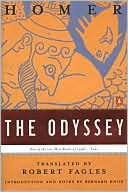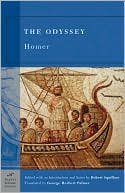The Rise of the Roman Empire
Polybius, himself a Greek and an active contemporary participant in political relations with Rome, wrote the forty books of his Universal History primarily to chronicle and account for the Roman conquest of Greece between 200 and 167 B.C. He saw that Mediterranean history, under Rome's influence, was becoming an organic whole, so he starts his work in 264 B.C. with the beginning of Rome's clash with African Carthage, the rival imperialist power, and ends with the final destruction of Carthage...
Search in google:
Polybius, himself a Greek and an active contemporary participant in political relations with Rome, wrote the forty books of his Universal History primarily to chronicle and account for the Roman conquest of Greece between 200 and 167 B.C. He saw that Mediterranean history, under Rome's influence, was becoming an organic whole, so he starts his work in 264 B.C. with the beginning of Rome's clash with African Carthage, the rival imperialist power, and ends with the final destruction of Carthage in 146 B.C.
The Rise of the Roman Empire List of Maps Introduction Translator's Note\ Book I: Introduction; The First Punic War\ Book II: Affairs in Spain; The Romans in Illyria; Affairs in Spain; Rome and the Gauls; Affiars in Spain; Events in Greece: the Achaean League\ Book III: Introduction; The Second Punic War; The Second Illyrian War; The Second Punic War; The Second Illyrian War; The Second Punic War\ Book IV: Affairs in Greece; Civil War in Cynaetha; Byzantium and the Black Sea\ Book V: Affairs in Egypt: The Death of Cleomenes; Affairs in Greece: Philip and the Greeks\ Book VI: From the Preface; On the Forms of States; On the Roman Constitution at Its Prime; The Roman Military System; The Roman Republic Compared with Others; Conclusion\ Book VII: Affairs in Sicily; Affairs in Greece: The Treaty between Hannibal and Philip of Macedon, The Character of Philip\ Book VIII: Affairs in Sicily: The Siege of Syracuse; Affairs in Greece: Philip of Macedon; Macedon; Affairs in Italy: The Siege of Tarentum\ Book IX: Introduction; Affairs in Italy: The Seige of Capua; On Generalship; The Character of Hannibal\ Book X: The Character of Scipio; Affairs in Spain: The Capture of New Carthage, Scipio and the Spaniards\ Book XI: Affairs in Italy: The Battle of the Metaurus; The Character of Hannibal\ Book XII: Criticisms of Timaeus and His Approach to History: Errors on the Fauna of Africa and Corsica, Errors Concerning Sicily, Intentional and Unintentional Falsehoods, Timaeus on Callisthenes, Demoshares of Athens, Agathocles of Sicily, Timaeus' Criticisms of Other Writers, Timaeus on the Bull of Phalaris, Timaeus' Methods in Composing Speeches, Comparison of History and Medicine, Timaeus' Lack of Political and Military Experience and Unwillingness to Travel, The Causes of Timaeus' Faults and Qualities of the Good Historian\ Book XIV: Affairs in Africa: Scipio's Campaigns\ Book XV: Affairs in Africa: The Final Campaign; The End of the Second Punic War; Affaris in Macedonia, Syria and Egypt; Affairs in Egypt: A Palace Revolution\ Book XVIII: Affairs in Greece: Flamininus and Philip; On Treachery; On the Phalanx; Affairs in Greece" Flamininus and the Peace Settlement\ Book XXIV: Affairs in Greece: Philopoemen and Aristaenus\ Book XXXI: Affairs in Rome and Syria: The Escape of Demetrius; Affairs in Italy: Aemilius Paullus, Scipio and Polybius\ Book XXXVI: Affairs in Rome and Carthage: The Third Punic War; On Fate and Chance\ Book XXXIX: From the Epilogue\ Maps Chronological Table Index








